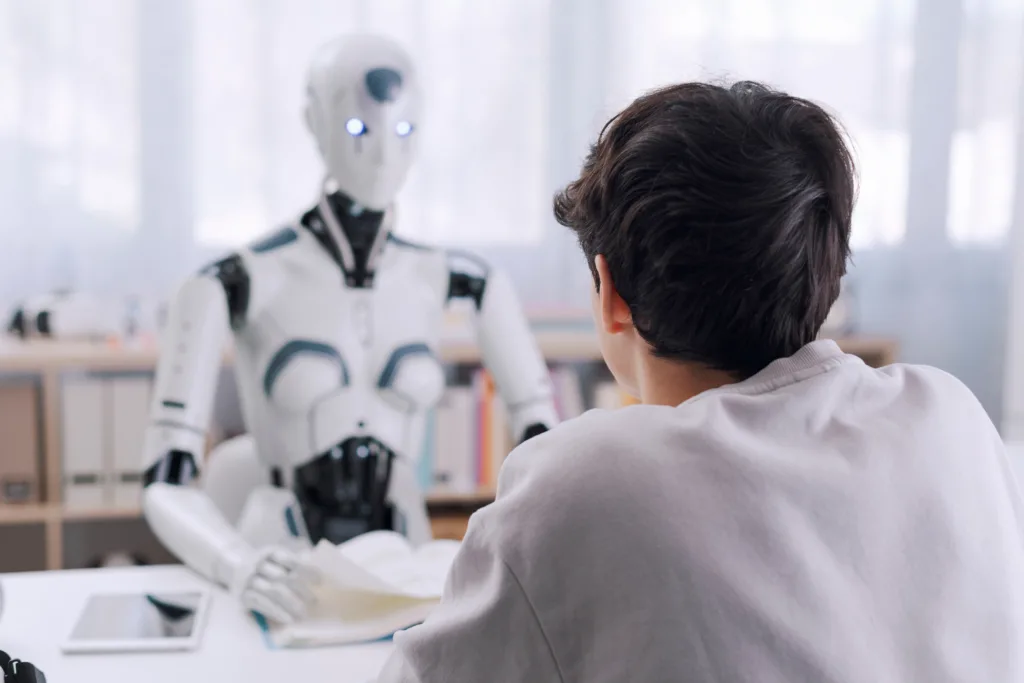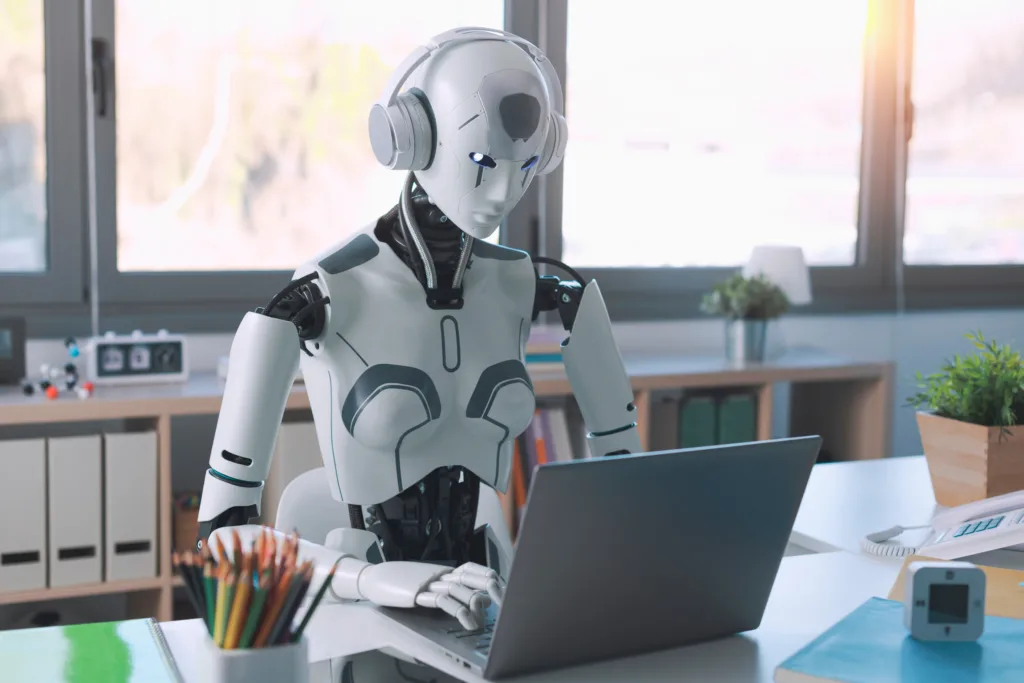Not quite … but it’s changing the game, says expert Karen Geary
I’m currently trialling four different AI tools. My background before nutrition was in technology, so I’ve always seen software as an enabler. It feels a lot like the early wave of digital transformation – only now, it’s coming for healthcare.
So, can AI replace me?
It’s a question I hear more and more – and I’ve even asked it of myself. After all, AI can write diet and fitness plans, identify nutrient gaps, summarise research in seconds and calculate macros (though it doesn’t yet access the most accurate food databases). It can explain how magnesium affects sleep and how vitamin C supports iron absorption.
Tasks that used to take practitioners hours can now be completed in seconds.
So: am I obsolete? Not quite.
But the ground beneath us is shifting.
And frankly – it’s exciting!

The rise of the data-literate client
We are entering an era where clients are no longer passive recipients of advice – we’re becoming data-literate, AI-supported decision-makers. Many are already wearing Oura rings, logging meals in Cronometer, and asking ChatGPT which supplements might help their energy.
And that’s a good thing.
Functional nutrition has always emphasised empowerment and root-cause thinking. AI simply accelerates access to that information.
What used to be specialist interest – continuous glucose monitors, gut microbiome tests, HRV tracking – is now becoming mainstream. My clients aren’t just arriving with questions anymore. They’re arriving with data and sensible hypotheses too.
What AI can do well
I use AI daily. It has become my virtual assistant:
Explaining concepts: From methylation to mitochondrial health, it quickly turns jargon into plain English
Recipe ideas: Give it a list of allergies, macros, and time limits – et voilà, lunch
Protocol support: It can suggest food lists, flag nutrient gaps, and cross-reference emerging research
Time-saving: From draft handouts to generating meeting notes—it’s like having a research assistant on call
Used wisely, it frees up time for deeper, more meaningful conversations with clients.
What it can’t do (and why I still have a job)
Here’s what AI still cannot do:
Contextual thinking: It can’t notice that your bloating worsens only during business travel, or that your fatigue appeared after grief
Pattern recognition over time: It won’t link a trail of “unconnected” symptoms across decades or recall what you said six sessions ago
Emotional nuance: It can’t catch the hesitation in your voice when you say you’re “fine” but clearly aren’t
Clinical discernment: It can’t distinguish a histamine issue from a trauma loop – or flag that a low FODMAP diet may be unnecessary
Understanding contraindications: Unless you prompt it with absolute precision, AI lacks context around medications, interactions and medical nuance
And it certainly can’t sit with you while you untangle years of confusing symptoms and self-blame. Nutritional therapy isn’t just data. It’s dialogue. The clues are often in what’s not said – and in the health history you didn’t think mattered, but your practitioner does.
Ethical considerations
As AI becomes more deeply embedded in nutrition, it raises important ethical questions. Data privacy is paramount – AI tools often require access to sensitive health information, which must be handled securely and transparently.
There’s also the risk of bias: if training data lacks diversity, recommendations may not be equitable or appropriate for all populations. Transparency is crucial. Practitioners must inform clients if their data (even anonymised) is shared with third-party tools, especially AI platforms. Clients also deserve to understand how AI generates suggestions and be empowered to question them.
Addressing these concerns is essential to building trust and ensuring AI enhances, rather than undermines, nutritional care.

The future is a partnership
I don’t think AI will replace nutritionists. I think it will expose poor practice – and elevate good ones.
My job now is interpreter, not gatekeeper, helping clients make sense of the flood of information they carry into the clinic.
What you can do now
Start a health timeline: Record your history – not just diagnoses, but symptoms, stressors and family patterns
Own your data: Use the NHS app to gather your blood work history, track your wearables and keep records of medications and supplements. Bring data with you to appointments. By all means use AI to try and help you make sense of things, but you need to have the right background to know what you are looking for in order to prompt AI in the right way.
Use AI … wisely: It’s great for reflection, learning and ideas. But it’s not a diagnostic tool – and no substitute for personal advice.
Stay curious, but cautious: AI is only as good as your input. If you don’t know what to ask, you might not like the answer. Take the information with a grain of salt and always fact check.
Final thought
AI is transforming healthcare. But healing still happens in a client-practitioner relationship. ChatGPT can suggest zinc-rich foods, but it can’t assess how well you absorb them. It can summarise biochemical pathways, but it can’t sense what’s missing between the lines.
So yes, AI is remarkable. But you – your body, your story, your goals – are more than an algorithm.
And for now, at least, I still have a job.
And it’s a privilege.


